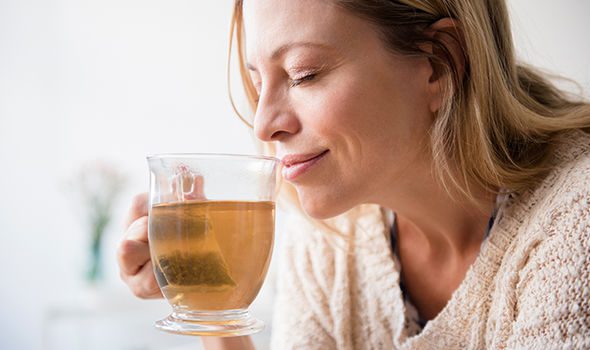Do you feel:
- Anxious or cannot focus on tasks?
- Do digestive problems subside with rest or relaxation?
- Stomach pains, burning, or aching 1-4 hours after eating?
- Redden skin?
- Nausea or vomiting?
Chamomile and its products are well known for promoting a relaxed state of mind and for improving sleep quality for anyone. This white and yellow flower, however, has many more impressive health benefits that are beneficial with anyone that is feeling stressed in their daily, hectic lives.
What is Chamomile?
Chamomile is an ancient medicinal plant from the Asteraceae family and is often referred to as the “star among medicinal species.” Its flowers have unusual properties that can boost a person's health and provide impressive benefits. This plant is native to southern and eastern Europe and has been around for thousands of years. Chamomile has been used in herbal remedies in Ancient Egypt, Greece, and Rome. The plant has thin spindly shaped roots, erect stem, and a flower head that looks similar to daisies. Since chamomile is a therapeutic and medicinal plant, it contains a wide variety of health-supportive compounds that can combat some of the ailments that a person can get.Chamomile Benefits
Chamomile's compounds can act as antioxidants in the body. As a result, consuming chamomile products can help prevent the common cold from coming, hay fever, inflammation, muscle spasms, menstrual disorders, insomnia, ulcers, wounds, gastrointestinal disorders, rheumatic pain, and hemorrhoids. The two most common types of chamomile are used for therapeutic purposes are the German chamomile (chamomillarecutita) and Roman chamomile (Chamaemelum Nobile). The flower is processed to create chamomile capsules and chamomile tea, while the plant can be extracted to be used as essential oils. These products can help the individual feel relaxed and eased their anxious minds.Reducing Pain
The anti-inflammatory effects of the chamomile flower and the essential oil can help to reduce the physical pain that the body has encountered. Since chamomile has been used for hundreds of years, it has helped individuals reduce the pain from headaches, back pain, toothaches, and other inflammatory-related symptoms they might be experiencing.A 2013 study from the University College in Dublin, stated that individuals drinking a herbal beverage that is composed of chamomile, meadowsweet, and willow bark saw that their mechanical joint functions were improving. Their lower back and knee pain was reduced with chamomile. The flavonoid apigenin is one of the main anti-inflammatory compounds that is found in chamomile that is contributing to reducing pain in the joints and the body.
A 2015 study also stated that chamomile oil had been shown as an increase in physical function when it is used as a topical oil for patients with knee osteoarthritis.
Heals Wounds and Promotes Skin Health
Chamomile can help reduce irritated skin. The essential oil from chamomile can be mixed with carrier lotion or oil and be applied directly to the irritated area. It can also provide a positive effect to reduce breakouts and calm down the red or dry skin, thanks to its anti-inflammatory and antibacterial properties. Chamomile products can also reduce symptoms that may be associated with gout, eczema, hemorrhoids, and ulcers that a person may encounter.In some instances, research has stated that chamomile is more effective than hydrocortisone cream for healing wounds. A 2011 Iranian study has compared that German chamomile solution that is being applied with a topical steroid on peristomal skin lesions on patients found that the wounds were healing faster with the chamomile solution than with the medical hydrocortisone cream.
A 2016 study that was published in the Journal of Supportive Care in Cancer has compared that water cryotherapy and the cryotherapy made with a chamomile infusion has helped with the prevention and the reduction of oral mucositis. The individuals that took the chamomile infused cryotherapy were presented with less mouth pain and had no ulcerations.
Improving Digestion
Another widespread use for chamomile, especially when it is brewed in a tea, is reducing unwanted symptoms that are associated with poor digestion in the digestive system. With chamomile tea, it can soothe an upset stomach, cramping, flatulence, and diarrhea. The therapeutic compounds that are found in chamomile can act as a digestive relaxant.Improves Sleep and Relaxation
Chamomile, when it is brewed into a tea, can improve sleep quality and can promote a relaxing state of mind. Many individuals found that drinking chamomile tea before going to bed has helped them relax more and have a better night's sleep. The sedative effects from chamomile tea are due to the flavonoid, apigenin that is bind with the benzodiazepine receptors in the brain. This effect can help reduce anxiety and promotes a good night's sleep.A 2017 study has found that sleep quality from older adults has improved after consuming chamomile extract before going to bed, while another study from the University of Fooyin in Taiwan found that postnatal women that are experiencing difficulty sleeping. They consumed chamomile tea for two weeks, and their sleep quality and mood improved drastically.
Boosting Mental Wellness
Using chamomile products can benefit a person's mental wellness. Since chamomile can help the individual relax, it can also help reduce the feeling of anxiety and depression. Studies have stated that long term chamomile consumption is safe and can significantly reduce moderate to severe GAD symptoms. Even using chamomile oil for aromatherapy, can be considered as an alternative for antidepressant treatments.Conclusion
So chamomile is a safe and productive plant that has been used for centuries to support individuals that have been experiencing a variety of unwanted symptoms. Chamomile is excellent for reducing pain, have better skin, healing wounds, improve digestion, sleep, and mental wellness. Whether it is taken in the form of tea, supplements, or used in aromatherapy, chamomile is a natural remedy for the anxious mind. Some products combined with chamomile are designed to offer support to the gastrointestinal tract and make sure that sugar metabolism is functioning properly.The scope of our information is limited to chiropractic, musculoskeletal, and nervous health issues as well as functional medicine articles, topics, and discussions. We use functional health protocols to treat injuries or chronic disorders of the musculoskeletal system. To further discuss the subject matter above, please feel free to ask Dr. Alex Jimenez or contact us at 915-850-0900 .
References:
Abdullahzadeh, Mehrdad, et al. “Investigation Effect of Oral Chamomilla on Sleep Quality in Elderly People in Isfahan: A Randomized Control Trial.” Journal of Education and Health Promotion, Medknow Publications & Media Pvt Ltd, 5 June 2017, www.ncbi.nlm.nih.gov/pubmed/28616420.Chang, Shao-Min, and Chung-Hey Chen. “Effects of an Intervention with Drinking Chamomile Tea on Sleep Quality and Depression in Sleep Disturbed Postnatal Women: a Randomized Controlled Trial.” Journal of Advanced Nursing, U.S. National Library of Medicine, Feb. 2016, www.ncbi.nlm.nih.gov/pubmed/26483209.
Charousaei, Firuzeh, et al. “Using Chamomile Solution or a 1% Topical Hydrocortisone Ointment in the Management of Peristomal Skin Lesions in Colostomy Patients: Results of a Controlled Clinical Study.” Ostomy/Wound Management, U.S. National Library of Medicine, May 2011, www.ncbi.nlm.nih.gov/pubmed/21617262.
Dos Reis, Paula Elaine Diniz, et al. “Chamomile Infusion Cryotherapy to Prevent Oral Mucositis Induced by Chemotherapy: a Pilot Study.” Supportive Care in Cancer: Official Journal of the Multinational Association of Supportive Care in Cancer, U.S. National Library of Medicine, Oct. 2016, www.ncbi.nlm.nih.gov/pubmed/27189615.
Drummond, Elaine M, et al. “An in Vivo Study Examining the Antiinflammatory Effects of Chamomile, Meadowsweet, and Willow Bark in a Novel Functional Beverage.” Journal of Dietary Supplements, U.S. National Library of Medicine, Dec. 2013, www.ncbi.nlm.nih.gov/pubmed/24237191.
Fortier, Cait. “Chamomile Health Benefits: Reduce Pain & More.” Fullscript, 1 Nov. 2019, fullscript.com/blog/chamomile.
Kong, Yingying, et al. “Inhalation of Roman Chamomile Essential Oil Attenuates Depressive-like Behaviors in Wistar Kyoto Rats.” Science China. Life Sciences, U.S. National Library of Medicine, June 2017, www.ncbi.nlm.nih.gov/pubmed/28527112.
Mao, Jun J, et al. “Long-Term Chamomile (Matricaria Chamomilla L.) Treatment for Generalized Anxiety Disorder: A Randomized Clinical Trial.” Phytomedicine: International Journal of Phytotherapy and Phytopharmacology, U.S. National Library of Medicine, 15 Dec. 2016, www.ncbi.nlm.nih.gov/pubmed/27912875.
Miraj, Sepide, and Samira Alesaeidi. “A Systematic Review Study of Therapeutic Effects of Matricaria Recuitta Chamomile (Chamomile).” Electronic Physician, Electronic Physician, 20 Sept. 2016, www.ncbi.nlm.nih.gov/pmc/articles/PMC5074766/.
Shoara, Ruhollah, et al. “Efficacy and Safety of Topical Matricaria Chamomilla L. (Chamomile) Oil for Knee Osteoarthritis: A Randomized Controlled Clinical Trial.” Complementary Therapies in Clinical Practice, U.S. National Library of Medicine, Aug. 2015, www.ncbi.nlm.nih.gov/pubmed/26256137.
Singh, Ompal, et al. “Chamomile (Matricaria Chamomilla L.): An Overview.” Pharmacognosy Reviews, Medknow Publications Pvt Ltd, Jan. 2011, www.ncbi.nlm.nih.gov/pmc/articles/PMC3210003/.
Srivastava, Janmejai K, et al. “Chamomile: A Herbal Medicine of the Past with Bright Future.” Molecular Medicine Reports, U.S. National Library of Medicine, 1 Nov. 2010, www.ncbi.nlm.nih.gov/pmc/articles/PMC2995283/.







